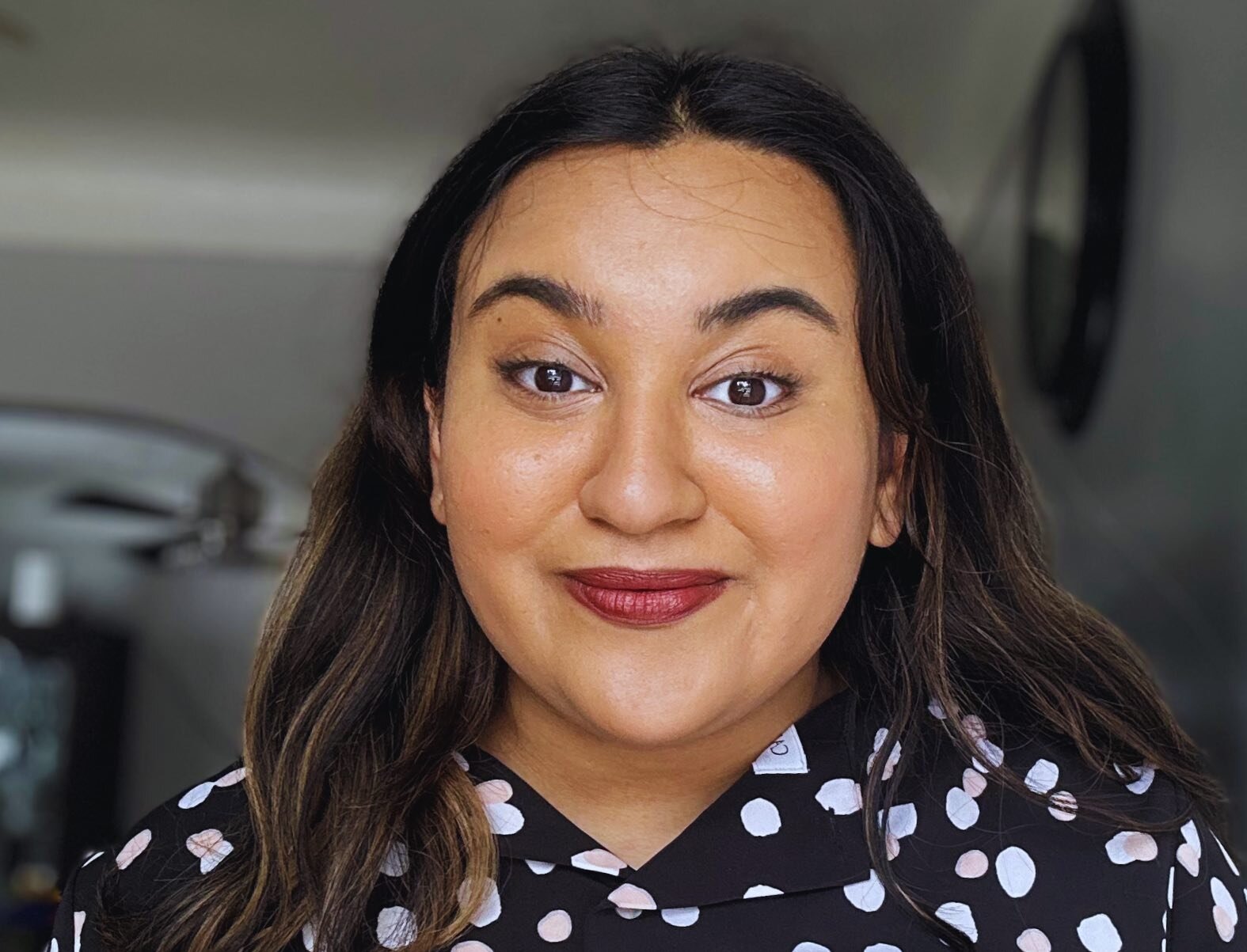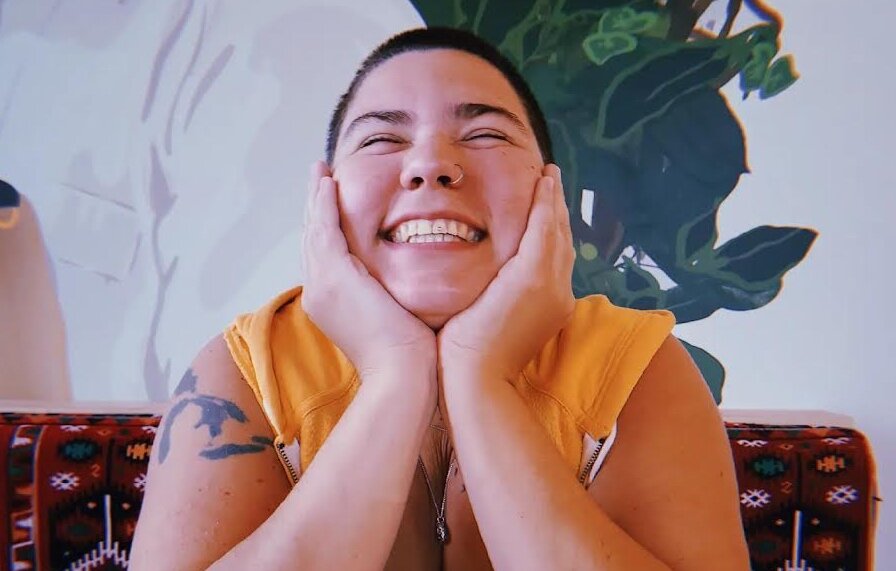Youth-led Detroit group calls for justice
DAYUM (Detroit Area Youth Uniting Michigan) is a youth-run activist organization that supports Michigan young people who want to organize around justice issues like climate change, school uniforms, voting, food insecurity – or any other concerns they feel passionate about.
Detroit Area Youth Uniting Michigan, or DAYUM, was founded in 2018 after a group of young people from metro Detroit joined the March for Our Lives protest in support of gun control. Hafiza Khalique is the board chair and Julia Cuneo is the strategic coordinator. The organization works on a variety of issues from climate change to reproductive justice by bringing in voices from all different races, backgrounds, genders and ages.
How would you describe DAYUM to someone who’s never heard of it before?
Khalique: We always define DAYUM as a youth-led social justice organization, and I feel like sometimes people really undermine the meaning of that because it’s literally a youth-run social justice organization. We are Julia’s boss, which is how we usually define it. The adults work for us and we work for all the youth in Detroit and our communities.
Cuneo: Our organization is a youth-run activist organization; it’s statewide across the region. It really exists to try and support any young people in our state who want to do political organizing and activism. Whatever issue it is that they are confronting or addressing in their lives, we want to support and help build their power so that they can make demands for changes whether that’s in their schools, cities or at the state level, even at the federal level. We really felt that there was a need for an organization that was youth-run that uplifted youth voices directly so that is what we were founded to do.
Why is it essential to have youth voices in fighting for justice?
Khalique: As the youth, young people will inhabit the earth longer than any other generation right now. We’re going to have to deal with the consequences of policies and legislation being made right now. We’re going to have to deal with the consequences of climate change. We’re going to have to deal with the consequences of how capitalism is destroying our planet. We’re going to have to deal with poverty. We’re going to have to deal with homelessness and all of these issues that are recurring. The worse and worse they get, people will be more impacted because we’re going to have to change everything.
Julia loves to say this all the time, but it’s true, “All the movements start with young people and young voices.” To reclaim the youth power and to be in decision making processes, it’s important that our voices are prioritized because we are the most impacted no matter what issue you look at. Like when Roe v Wade was overturned a lot of people were talking about losing access to abortion and reproductive health care. What’s excluded a lot of times from that conversation is young people never really had access to reproductive health care. We actually organized a protest that was youth led in Lansing about reproductive justice because in order to talk about these issues, we have to talk about how our youth didn’t always have access to these resources.
What injustices are you most passionate about?
Khalique: My biggest project last year was a campaign to abolish the uniform policy in Detroit Public Schools Community District. We’re one of the only school districts that still has the uniform policy, and the reason for this was because it “reduced students from being suspended or expelled” leading to the assumption that all these students wearing uniforms led them to obey administrators and staff more. We were fighting against this because it traces back to a lot of racist history, genocidal history. Especially because I believe over 90% of the students identify as black indigenous people of color. We were successful in that campaign, we did receive a more or less strict dress code that was free from sexist jargon, which was incredible. We also have a podcast called Get Schooled where we talk about school abolition.
Cuneo: DAYUM is an organization that goes where the young people are going, so a lot of the time we will switch campaigns really quickly. Right now, we are seeing is a lot of excitement around climate justice. We’re building a youth-led climate campaign, and pushing back on some of the polluters and holding accountable some of the corporations who aren’t, like Hafiza said, taking into account young people’s futures and creating a better world to leave behind for them. We’ve worked on reproductive justice. We had a campaign last year to lower the voting age to 16, which was really just to try and lift up that conversation and start that discussion of why young people cannot vote. Taxation without representation because a lot of 16-year-olds pay taxes. We’ve also worked around expanding SNAP benefits and food justice, specifically from a young person’s lens.
What DAYUM programs and trainings have young people found most beneficial?
Khalique: I remember we had a direct action training, where we had trainings for a few days, and the presenters were incredible, specifically Black Out Collective. I learned a lot of information on how to organize a protest, who to reach out to when in need of safety. It actually helped me a lot because I organized quite a few protests.
Cuneo: Most of our training happens through the campaigns that the young people are leading. We do a little bit of summer training programming, like this summer we’re focusing on skill building and relationship building. We will have our alumni members train our new members, and when the fall hits that’s when we have them start leading campaigns. It really goes on what skills our members are wanting to build up.
Sometimes it can be hard to be heard, especially youth voices. What challenges do you face being youth-led?
Khalique: Elected officials don’t listen to us because we can’t vote. School board members don’t listen to us because we can’t vote for them. Administrators don’t listen to us either because we’re not their bosses, and so we go back and forth between the school and the school district and they’re like “no ask the school” and the school is like “no go to the school district” so we’re going back and forth. We’re always being pulled in so many different directions by people who we’re targeting and it gets really exhausting to want to continue after that because it gets really hard when no one in the room is listening to you no matter how loud we are.
This reminds me of a school board meeting Julia and I went to where usually we would speak over zoom, but we went in person and we thought maybe they would actually listen to us because we’re in front of them right? But the superintendent was on his phone and at that moment I was like, “Wow, they really hate young people and do not want to listen to us.” The more you think about it though, it makes sense. We can’t vote for them. We can’t elect them so they really just don’t care about how we feel. They care about what the parents think, sometimes they care about what the school board members think, what the community thinks because those are the people that can actually vote them in and vote them out. This wasn’t just a one-time thing; they would always be on their phones while we’re talking. No matter how loud we raise our voices, no one’s listening to us, at least the ones who are making the decisions.
With young voices coming to play in these heavy conversations, how do you hope to influence decision-making and policy?
Khalique: It shows the power young people have when they’re trying to lift the voting age to 21. We’re trying to lower it to 16. They’re really just handing us something that says, “You’re too powerful. You need to tone it down. We need to raise the voting age.” With comments like these, that just shows how much power us young people really have.
Cuneo: I was really excited at the last election, when we saw the youth voter turnout in 2022 and how that affected Michigan’s election. I read that GenZ and Millennials voter turnout canceled out conservative voters over 65 completely. That was an exciting thing to read because the hope is that elected officials and leaders in our community will start to see the power that youth voices have. To see the importance of listening to them and allowing themselves to be pushed by them and to take these problems more seriously and act more boldly, rather than coloring within the lines. I think young people today are sick and tired of being told to be quiet and be polite, to wait their turn and the leaders today are starting to see the young people’s power and the impact that it can have.
Are there any upcoming events scheduled or plans for the school year?
Cuneo: We will be launching two campaigns for this school year, the young people are in the process of proposing and analyzing and discussing which campaigns we will focus on. We know one will be climate focused, but the other one is up in the air. We do have a statewide base so we will be working at the state level to uplift young people’s voices on current issues. It will be really exciting once school starts to get started with recruitment and building up those campaigns and starting to put demands out there from the young people. The best way for people to really support and get involved is to follow up on our social media, we’re on Instagram and TikTok. We just want people to engage with us, and show up when we call out.
This entry is part of our Nonprofit Journal Project, an initiative inviting nonprofit leaders across Metro Detroit to contribute their thoughts via journal entries on how COVID-19, a heightened awareness of racial injustice and inequality, issues of climate change, and more are affecting their work–and how they are responding. This series is made possible with the generous support of our partners, the Michigan Nonprofit Association and Co.act Detroit.







